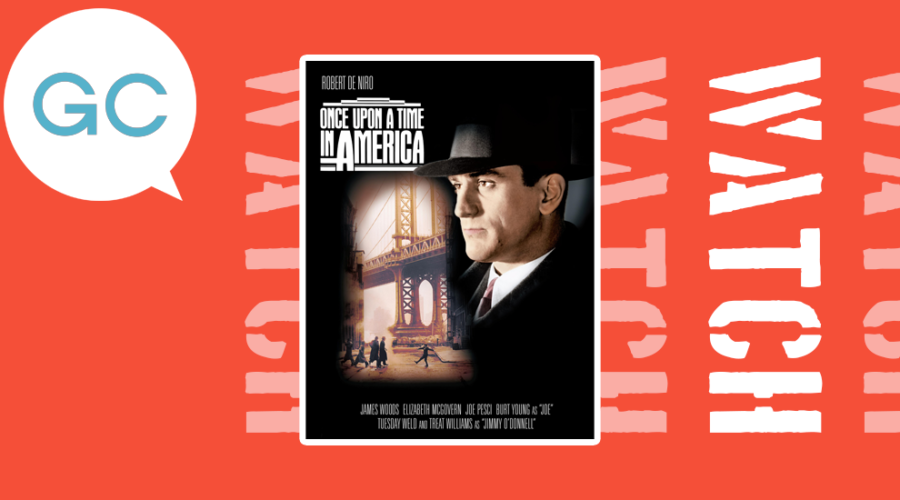I’m having a hard time writing this column in the glare of the presidential election and the revelation that a dear friend has passed away (it happened a while ago, across the Pond, and I wasn’t even aware until recently because Russia’s war on Ukraine has wrenched me from many of my friendships and routines).
As usual in times like these, I run to my comfort content, the books and music and TV shows and movies that keep me ticking. And of course times of political strife make me think about what my country is, and where it is going.
With that in mind, I rewatched the European cut of Once Upon A Time in America — an epic movie that was a flop in its time due to bad editing, and which came out a year I was born, far away from the very idea of America (fates can be convoluted, you never know where you’re going to end up, always remember that).
So here I am, a former Ukrainian immigrant turned citizen, watching Italian Sergio Leone’s take on the rise of organized crime in the United States. Watching about the birth and death of friendship, about the painful tension embodied in class differentials, about the bitter ebbs and flows of organized crime and sexual violence and the way men use women to bury their self-loathing, and… well, this story is as familiar today as it was before.
I know I talk about this a lot, but people are always prophesying the end of America. But we, and it feels good to use that we, always, in spite of any horrors, are always fucking up and beating ourselves down and getting back up again. Consider the 1920s, when Once Upon A Time In America begins, with Prohibition and the fucking Great Depression.
We like to think of the past as harmless, safely contained in a box in the attic, but the truth is, the past is alive and churning around us always (especially if you consider the fact that the linear nature of time is an illusion). In many ways, in fact, we are already in a new Gilded Age, with insane and partially sane billionaires trying to run our lives, and the smell of doom and wilting roses in the air.
I think that’s why Sergio Leone’s dark gangster fairy tale remains such a classic. Leone understood time, American time specifically, on a molecular level (there’s a reason why the director’s cut swings wildly between past and present; it doesn’t confuse a careful viewer, it creates a rhythm). He understood that love and power have different timelines. Power is quicker. Love is eternal.
A lot of ink has been spilled (God, it feels so quaint to talk about ink, speaking of time), about the performances of both Robert De Niro (Noodles) and James Woods (Max) in the film, and rightfully so.
But in the many years since I first watched it, I’ve thought more about Elizabeth McGovern’s character, Deborah Gelly, both loved and horrifyingly wronged by Noodles.
Plenty of people of my generation and younger haven’t watched this film, so I don’t want to explicitly give away what happens between Noodles and Deborah. I was disgusted when I first watched a pivotal scene featuring the two of them, and thought Leone had made the wrong choice — he glorified needless violence and exploitation. But then I realized that Leone was, in a sense, disgusted too — by the circumstances that both Noodles and Deborah found themselves in.
Once Upon A Time In America is not a hopeful kind of epic, it’s a bloodsoaked and tragic one
Deborah is similar to F. Scott Fitzgerald’s Daisy, trapped simultaneously by her electric ambition and social standing. Noodles only really understands the language of force when it comes to expressing himself to women or, in fact, most men. He’s a bit of a Gatsby, though a much more terrifying one. They are both beautiful and trapped, both doomed in their own ways. And I’m not saying that to excuse Noodles. I’m saying that to point out that much like David Lynch, Sergio Leone understood the most cruel parts of American life, and the way they create a shadow that is necessary if we are to acknowledge the good that exists alongside it.
America is a rich country, and its stories are rich and overblown too, another fact that Leone understood on an organic level, just as he understood how the relentless pursuit of money hollows people out. We see how it plays out in our politics all the time, and how it damages our institutions.
Again, these are stories that we repeat, always on a grand scale. It makes me wonder what Leone would have thought about the age we’re in today. I can imagine him chuckling about it.
Once Upon A Time In America is not a hopeful kind of epic, it’s a bloodsoaked and tragic one, very close to the roots of the epic as a genre. But it is also a poem, again keeping with the traditions of the epic. A poem I like to repeat to myself when I am uncertain of the world, and when I am uncertain of the future of my adopted motherland.
As Noodles the gangster says, “She’s out there. She exists. And that would get me through it all.”

